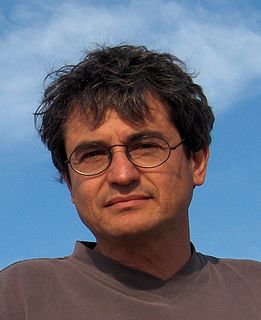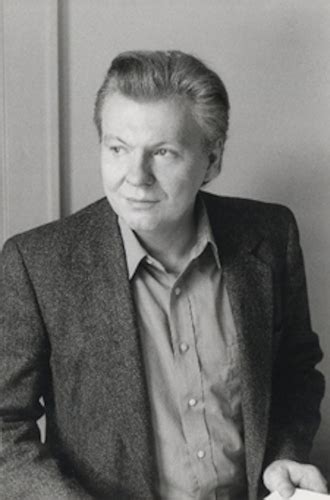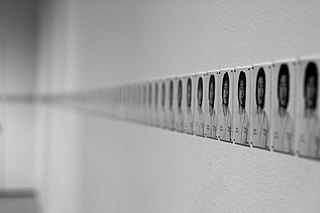A Quote by Leslie Marmon Silko
Time limits are fictional. Losing all sense of time is actually the way to reality. We use clocks and calendars for convenience sake, not because that kind of time is real.
Related Quotes
The time would not pass. Somebody was playing with the clocks, and not only the electronic clocks but the wind-up kind too. The second hand on my watch would twitch once, and a year would pass, and then it would twitch again. There was nothing I could do about it. As an Earthling I had to believe whatever clocks said -and calendars.
We never really see time. We see only clocks. If you say this object moves, what you really mean is that this object is here when the hand of your clock is here, and so on. We say we measure time with clocks, but we see only the hands of the clocks, not time itself. And the hands of a clock are a physical variable like any other. So in a sense we cheat because what we really observe are physical variables as a function of other physical variables, but we represent that as if everything is evolving in time.
Consider the word “time.” We use so many phrases with it. Pass time. Waste time. Kill time. Lose time. In good time. About time. Take your time. Save time. A long time. Right on time. Out of time. Mind the time. Be on time. Spare time. Keep time. Stall for time. There are as many expressions with “time” as there are minutes in a day. But once, there was no word for it at all. Because no one was counting. Then Dor began. And everything changed.
The Greeks had two words for time. Chronos is the time we usually keep an eye on. Kairos was our participation of time. Time that moves us so that we lose our sense of time; timeless time; moments at which the clocks seems to stop; feeding, renewing, more motherly time. It's the time with which we feel one instead of outside of it, the self, the tao, the love that connects us to others.
Chronological time is what we measure by clocks and calendars; it is always linear, orderly, quantifiable, and mechanical. Kairotic time is organic, rhythmic, bodily, leisurely, and aperiodic; it is the inner cadence that brings fruit to ripeness, a woman to childbirth, a man to change the direction of his life.
Life holds one great but quite commonplace mystery. Though shared by each of us and known to all, seldom rates a second thought. That mystery, which most of us take for granted and never think twice about, is time. Calendars and clocks exist to measure time, but that signifies little because we all know that an hour can seem as eternity or pass in a flash, according to how we spend it. Time is life itself, and life resides in the human heart.
One of the ways the telegraph changed us as humans was it gave us a new sense of what time it is. It gave us an understanding of simultaneity. It gave us the ability to synchronize clocks from one place to another. It made it possible for the world to have standard time and time zones and then Daylight Savings Time and then after that jetlag. All of that is due to the telegraph because, before that, the time was whatever it was wherever you were.
What differentiates time from space is that time does have a direction. In that sense it is different from space. I think that's certainly true that whereas spatial dimensions don't have direction or an arrow, time does. It runs from past to future. But I see that arrow of time as rooted in a deeper metaphysical reality, namely the reality of temporal becoming - of things coming to be and passing away. That is why time has this arrow. But it's not sufficient to simply say that time and space are distinct because time has a direction. The question will be: why does it have a direction?
When the first mechanical clocks were invented, marking off time in crisp, regular intervals, it must have surprised people to discover that time flowed outside their own mental and physiological processes. Body time flows at its own variable rate, oblivious to the most precise hydrogen master clocks in the laboratory. In fact, the human body contains its own exquisite time-pieces, all with their separate rhythms. There are the alpha waves in the brain; another clock is the heart. And all the while tick the mysterious, ruthless clocks that regulate aging.
I often wonder whether real conversation in real time may eventually give way to these sanitized and easier screen dialogues, in much the same way as killing, skinning and butchering an animal to eat has been replaced by the convenience of packages of meat on the supermarket shelf… Perhaps future generations will recoil with similar horror at the messiness, unpredictability and immediate personal involvement of a three-dimensional, real-time interaction.
Time is a relationship that we have with the rest of the universe; or more accurately, we are one of the clocks, measuring one kind of time. Animals and aliens may measure it differently. We may even be able to change our way of marking time one day, and open up new realms of experience, in which a day today will be a million years.
There is a balance, a kind of standoff between the time continuum and the human entity, our frail bundle of soma and psyche. We eventually succumb to time, it's true, but time depends on us. We carry it in our muscles and genes, pass it on to the next set of time-factoring creatures, our brown-eyed daughters and jug-eared sons, or how would the world keep going. Never mind the time theorists, the cesium devices that measure the life and death of the smallest silvery trillionth of a second.... We were the only crucial clocks, our minds and bodies, way stations for the distribution of time.
I perform in art time and in real time, and you can't tell the difference - no one knows how to separate a real act from an art act in my work. When I lived on the street for a year, people only knew that I was homeless. They didn't know that I was an artist doing a piece. I have to use real time in my work. I do, however, have to find a subtle way of documenting real time, in order for people to have a response. That means punching into a work clock every hour in the case of one piece.




































